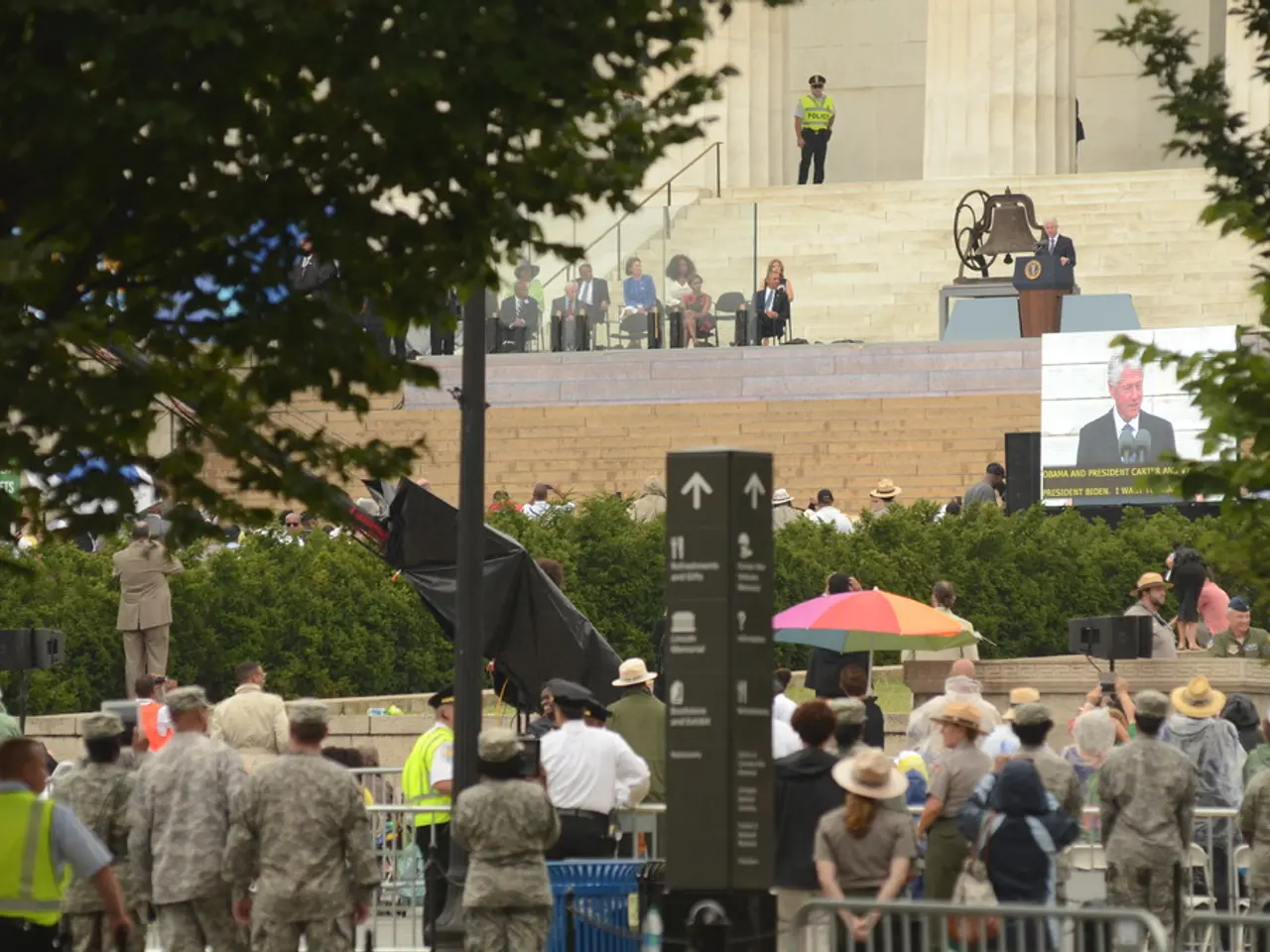Unacceptable Direct Summons for Lawyers: Supreme Court (SC)
New Delhi Rolls Out the Red Carpet for Legal Independence
Step into the bustling city of New Delhi, where justice isn't just served, but held in the highest regard. The Supreme Court recently slammed the brakes on a practice that potentially jeopardizes the very foundation of the legal system – police summons for lawyers in client-related cases. In a bold move, the judiciary reaffirmed that such actions could be a catastrophic blow to the autonomy of the legal profession and a sinister threat to the independence of justice administration.
The tense rhythm of this battle between the authorities and the legal fraternity unfolded during an appeal by a lawyer from Gujarat. This spirited advocate was hit with a High Court order upholding a police notice demanding his presence in relation to a bribery scandal involving his client. In response, the Supreme Court kindly asked the state to cool its heels and refrain from tormenting the poor lawyer - they've got better things to do, like upholding the law, right?
"Lawyers play a pivotal role in the administration of justice," mused the bench, highlighting that these legal eagles are shielded by Article 19(1)(g) of the Constitution and protected by statutory privileges. The court went on to question if the police should ever be allowed to magically summon a lawyer advising a client without the blessing of a judge. They also deemed it appropriate to request the wisdom of the Attorney General, the Solicitor General, the chairperson of the Bar Council of India, and the presidents of the Supreme Court Bar Association and Advocates-on-Record Association. The Chief Justice no doubt wore a wry smile as he pondered the input he'd be receiving.
All this drama doesn't end here. The Enforcement Directorate recently deemed it appropriate to withdraw summonses sent to senior advocates Arvind Datar and Pratap Venugopal in a money-laundering probe, under one condition... approval from the agency's director. Sounds vaguely like a script for a politically charged, suspenseful crime thriller, right? The legal fraternity, not one to shy from voicing their opinions, condemned this misadventure as a "disturbing trend" that strikes at the very core of the legal profession. They forcefully appealed for the Chief Justice to intervene and restore order.
Some might argue that the legal system is a complex dance of power and politics. But when it comes to the protection of legal independence and the administration of justice, the Indian Supreme Court has made it crystal clear: direct police summons without judicial oversight is a no-go zone. This bold stance upholds the integrity of the legal profession and safeguards justice for all. Now, that's a dance worth watching!
Referenced Enrichment Data:
- The Supreme Court's stance on police summoning lawyers for client advising without judicial oversight threatens the legal profession's autonomy, imperiling the independence of justice administration
- Lawyers' rights and privileges under the Constitution and statutory laws are infringed by direct police summons, undermining the professional autonomy and confidentiality inherent in legal practice
- Such direct summoning can create a chilling effect, impeding lawyers' ability to uphold fair legal representation and facilitate the justice system
- Judicial oversight is crucial to ensure summonses to lawyers issued solely for their advisory role do not undermine proper legal procedure
- The Supreme Court has taken measures in recent instances to prevent this unlawful practice and is actively working to safeguard the autonomy of the legal profession and the administration of justice.
"This recent stand taken by the Supreme Court, preventing direct police summons for lawyers in client-related cases, is also significant in the broader context of general-news – it reflects the court's commitment to upholding the autonomy of the legal profession and maintaining the independence of the justice system, even in the face of potential threats from crime-and-justice organizations."
"Moreover, the legal fraternity's ongoing appeal for the Chief Justice to intervene in instances where direct summonses are issued to lawyers without judicial oversight, is a clear example of how these issues are not just limited to the courtroom, but also intersect with broader political and social concerns."




